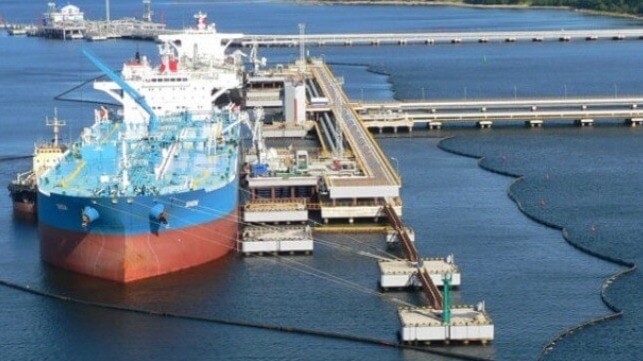G7 Plans to Restrict Shipping of Russian Oil Using a Price Cap

The G7 nations have reached a landmark decision to attempt to put a price cap on seagoing shipments of Russian oil, hoping to restrict the amount of money flowing to Moscow without an outright ban on its crude. While an outright embargo could be effective in reducing Russia's oil income, it would also have substantial impact on the rest of the global economy, and the price cap is intended as a compromise solution.
In a joint statement, the G7 finance ministers proposed "a comprehensive prohibition of services which enable maritime transportation of Russian-origin crude oil and petroleum products globally" except for oil purchased below a certain price, which would be determined by the implementing nations. The idea is a form of a "buyer's OPEC": unless the oil is sold below an artificial price threshold, it can't be bought.
The G7 solicited input and help from other countries involved in trading in Russian oil in order to maximize the effectiveness of the measure. In particular, it noted that artificially cheap Russian oil could benefit low- and middle-income countries, which have already been hit by inflation and high food costs driven by the Russian invasion.
The mechanism would work by restricting "service providers" - shipowners, charterers, insurers, bankers, etc. - to doing business related to Russian seaborne oil only if the oil sale price fits the limit.

that matters most
Get the latest maritime news delivered to your inbox daily.
However, getting from enactment to implementation may not be easy. First, shipping companies may not be equipped to assess the true sale price of the oil; it would be simple for the buyer and seller to misrepresent the price, just by making one low payment for reporting purposes and then arranging additional covert payments through shell companies. Law enforcement agencies might have the sophistication to detect this kind of fraud, but a shipowner might not have the resources to do much more than accept the declared price at face value - unless provided with some form of vetting assistance.
The other obstacle could be Russian pushback, which might come in unexpected ways. Russia could decide to stop selling oil to countries participating in the ban in an attempt to break the unity of the coalition. The Kremlin could also apply pressure in other ways, as it appeared to do Friday: just after the price cap plan was revealed, Russian state gas company Gazprom announced that it had discovered leaks in a pipeline compressor station for the Nord Stream 1 pipeline. The repairs, Gazprom said, would mean that it would not be able to reopen Nord Stream 1 (which supplies a substantial share of Germany's gas) as scheduled. It gave no timeline for reopening.
